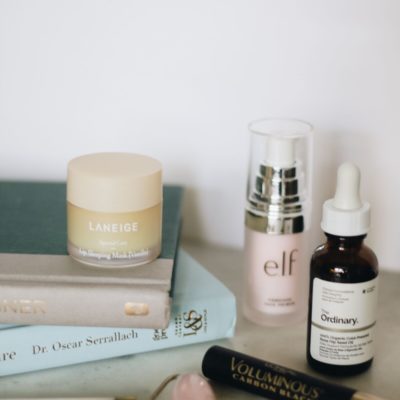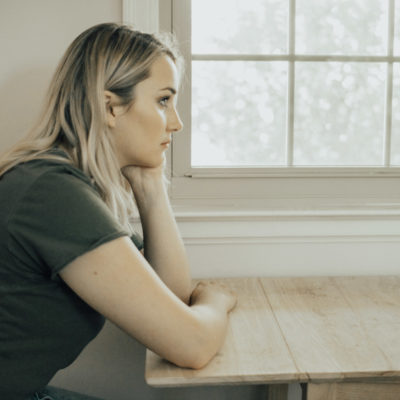Why Humans Need More Playtime (and How to Incorporate it Into Your Life)
posted on October 4, 2019 | by Sophia Ronga

This article is a gift to my seven-year-old brother. When I asked him – at five years old – about first grade, my brother turned to me and said solemnly, “It’s awful. There are toys in the back corner. But they only let you play with them sometimes.” That was a kid who loved his recess.
This article is also a gift to a seven-year-old you. The one that would spend hours with your siblings and neighborhood friends playing Run the Bases (please, it couldn’t have been just me) and never turned down a challenger in a match of Monopoly.
What is this gift? It’s the science-backed written permission you need to incorporate more playtime into your life. Playing important! It’s actually vital! Take that, first-grade teacher!
Read on to find out why adults still need recess and how you can better incorporate it into your life.
Why we need play
Play is something that is often studied in humans. Usually, though, those studies were conducted with mini-humans. Kids. It’s become pretty clear that elementary students need recess; they fidget less, focus more, are more collaborative, and hell they even eat healthier when they get to incorporate some clowning around into their day.
Of course, as we age, the benefits of play don’t necessarily change. Studies have shown that adults who incorporate more play into their lives are less likely to report stress and have better coping mechanisms for handling stress when it does come. It’s actually because they are more playful, researchers theorize, that these adults are better able to put their stress into perspective and react to it in a better manner.
And the benefits don’t stop there. Playing helps to improve brain function, it bolsters creativity – because you’re more likely to succeed in solving a problem if it’s fun, and it typically makes us more engaged socially.
These qualities can make you a better employee and a better member of society. Of course, they make you an overall more fun person to be around (ahem, if you’re looking for a relationship, people often list “playful” as a quality they find most attractive).
How to incorporate play into your life
Think about what you enjoy (even if that changes often)
Don’t make this more stressful than it has to be. It is playing for pure enjoyment, after all, so pick activities that you actually enjoy doing.
Recognize that this can change over time! If you used to be the fastest kid on the playground, but now a game of soccer gives you an uncomfortable amount of anxiety (an amount of anxiety that only shinguards can give you), maybe avoid the summertime soccer rec league. If you were once excited about completing puzzles, but now it seems like more of a chore than something to do for fun, put the pieces back in the box and try something else.
Finally, if you turned something you love into a side hustle and it’s starting to feel like a job – aka it adds stress to your life rather than subtracting it – then that activity is no longer something that is considered “play”. I’m not saying to quit your side hustle, I’m only saying you will have to find something else that does not add stress that you can consider your play activity.
Commit to your play
It is obviously not enough to think about these activities that would be fun. You need to actually commit to doing them.
Take action in a way that makes you have to prioritize playing. Put down some cash for a registration fee for a rec league or tell your friends that you schedule thirty minutes every morning just to do Sudoku. Both of these will help frame this as a priority, so we’ll be less likely to back out of them when the time comes.
Be consistent
I’ve written before about how vacations can be beneficial not only to your mental health but also to your performance at work. So OK, yes, you’ll use your vacation days. But should you do it all at once? In one big swoop? Heck no.
Researchers suggest spreading out your vacation days so you can consistently take time off throughout the year (plus, an eight-day vacation is optimal for relaxation).
And similar to having consistent vacations throughout the year, you should spread consistent playtime throughout your days, weeks, or months. Be conscious about taking time each day – fifteen minutes even – to do something that brings you joy, and reflect often on whether you are able to actually consistently play.
If you suddenly realize you’re only having fun on Saturdays (because Monday through Friday is for work and Sunday is for errands and every self-respecting adult knows that), then consider a weeknight trivia or a monthly book club that meets on Wednesday evenings.
So, if you retired your love of recess when you outgrew your elementary school backpack or if you’ve simply been feeling burnt out recently and don’t know why, know that incorporating proper playtime into your life is vital. Win that Jenga game, finish that book, run around like Phoebe trying to jog in Friends. You’ll be glad you did.
What kind of activities do you consider play? I’m always looking for more ideas!
 Using Trunk Club to Update My Spring/Summer Wardrobe
Using Trunk Club to Update My Spring/Summer Wardrobe 5 Tips For Styling a Simple Summer Dress
5 Tips For Styling a Simple Summer Dress 5 Ways to Style a Bandana
5 Ways to Style a Bandana 3 Different Ways to Curl Your Hair
3 Different Ways to Curl Your Hair How to Master the 5-Minute Makeup Routine
How to Master the 5-Minute Makeup Routine Amazon Beauty Buys Under $25
Amazon Beauty Buys Under $25 3 Ways to Make Your next Trip More Memorable
3 Ways to Make Your next Trip More Memorable Tips for Digital Spring Cleaning and Organizing
Tips for Digital Spring Cleaning and Organizing Color Trend: Marigold
Color Trend: Marigold Mental Health Update: The 3 Major Changes I Made to Get Out of Depression
Mental Health Update: The 3 Major Changes I Made to Get Out of Depression 5 Unexpected Ways to Unwind After Work
5 Unexpected Ways to Unwind After Work How to Know You’re in a Controlling Relationship
How to Know You’re in a Controlling Relationship 4 Questions I get Asked as a Professional Resume Writer
4 Questions I get Asked as a Professional Resume Writer How to Make Friends at Work
How to Make Friends at Work Getting Out of the ‘Busy’ Mindset
Getting Out of the ‘Busy’ Mindset Ask Amanda: How do I pursue the career I want without formal training?
Ask Amanda: How do I pursue the career I want without formal training? Ask Amanda: How Do I Find a Therapist?
Ask Amanda: How Do I Find a Therapist? Ask Amanda: How do I stop being jealous in my relationship?
Ask Amanda: How do I stop being jealous in my relationship?



